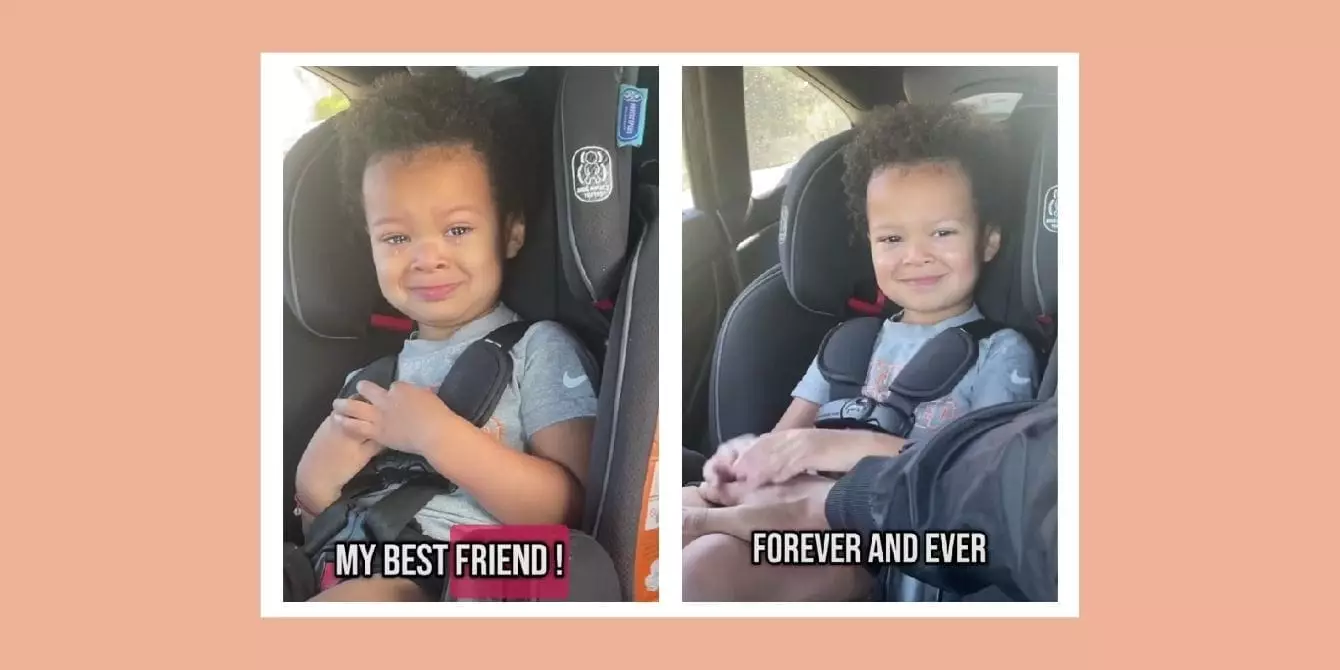In recent years, the narrative surrounding masculinity and fatherhood has undergone a notable transformation. This cultural shift is encapsulated in a viral TikTok video featuring father and son, shared by creator @Micahzanesworld. The video isn’t merely about a dad enjoying a meal with his toddler; it’s a poignant illustration of modern fathering that dispels long-held notions of masculinity. The father’s affirmations—“You’re the best, best son ever, my favorite! My best friend!”—are heartfelt and evocative. Moments like these, tender and genuine, challenge the outdated stereotype of the emotionally stoic father, paving the way for a new generation of men who embrace their vulnerability.
The vision of fatherhood portrayed in this clip resonates with viewers far beyond its simple premise. The heartfelt interaction between a father and his son evokes emotions within us—tears blink back not just from the toddler but from millions watching. This moment sparks a collective reflection on our own experiences of love and affirmation received, often void in previous generations.
Emotional Availability: A New Masculinity
Comments from viewers emphasize the importance of this emotional exchange. Observations like, “That baby is a full-blown empath,” reveal an intersection between emotional intelligence and nurturing. The video illustrates why today’s fathers are redefining masculinity—not through toughness and stoicism but through openness and emotional availability. This movement resounds deeply, particularly among those who are children of fathers raised in eras where emotional expression was often suppressed.
Scientific studies support this shift. Research from the University of California indicates that children who receive emotional warmth from their fathers exhibit increased emotional regulation and enhanced social skills. Hence, this seemingly small moment in a car can have long-lasting impacts on the child’s development. The importance of affirming words cannot be overstated, particularly for boys, who often face societal pressure to conform to rigid notions of masculinity.
Challenging Generational Trauma
One of the most thought-provoking comments on the TikTok video contemplates generational trauma, suggesting that many fathers are “rewriting history” with their children. The act of expressing love and affirmation becomes not just a present-day parenting choice, but a reclamation of what many lacked in their own childhoods. In a society still wrestling with the remnants of toxic masculinity, such moments of tenderness pave a path toward healing.
Spencer, a father featured in the discussion, articulates the struggle some men face—feeling the pressure to be “tough” while raising emotionally healthy children. His words resonate, urging men to embrace emotional expression as part of parenting. “It’s OK for men to cry. It’s OK to have emotions,” he states. This represents a seismic shift in cultural mindset, encouraging all fathers to instill lessons of resilience alongside vulnerability.
The Community Response: A Collective Healing
The comments section of the video has morphed into an impromptu support group, where users share their reflections on fatherhood. Observations about emotional literacy, like “That little dude is going to grow into a loving, confident, wise man,” encapsulate the aspirations many have for the next generation. This communal dialogue highlights how such interactions can not only influence individual families but also contribute to broader societal change.
Words of affirmation are identified as crucial—comments from mothers, fathers, and fellow community members echo the sentiment that parenting today extends beyond biological connections; it’s a shared responsibility to foster love, respect, and emotional openness. Words like “Awww” and “Oh my gosh,” peppered through the responses, underline the tenderness and engaged familiarity born out of the acknowledgment that this reality of nurturing is not only possible but essential.
The Essential Role of Fathers
As we witness these tender moments proliferating across social media, it is vital to acknowledge the fundamental role fathers play in shaping the emotional landscape of their children’s lives. The soft, loving tones captured in the TikTok video signify a new dawn of fatherhood that transcends conventional limitations. It’s a call to action for dads everywhere to embrace their capacity for nurturing.
If we hope to raise children who are emotionally adept, secure, and compassionate, we must continue to advocate for father figures who are courageous enough to express their feelings and show love openly. This evolution in how we perceive and enact fatherhood is not just revolutionary—it is necessary for developing emotionally intelligent future generations.

